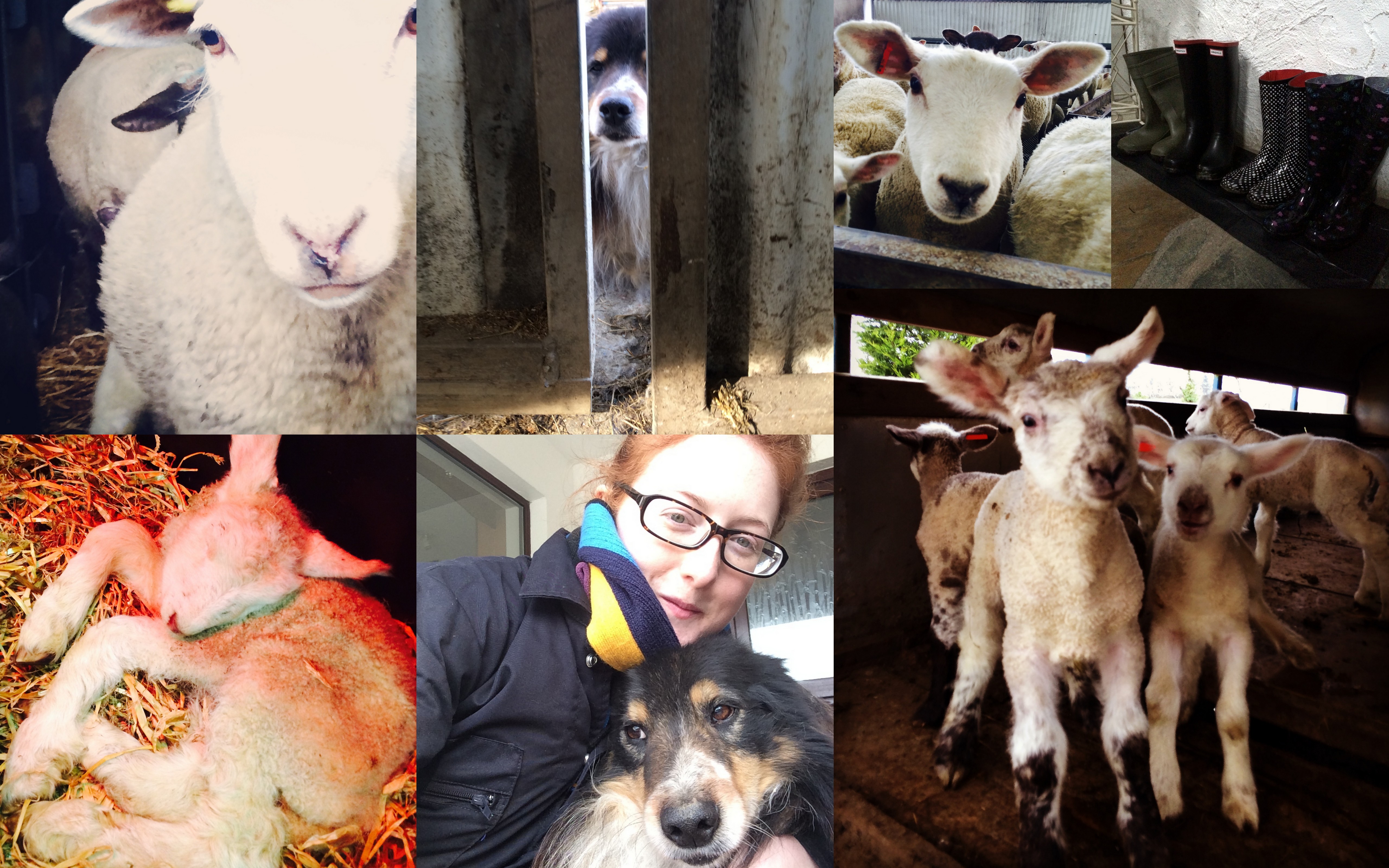One key component early in the Veterinary Medicine degree is to acquire practical handling skills with various types of farm and companion animals (and exotics if you want to!). Coming from the Animal Science degree in UCD I already had a decent amount of experience under my belt. One of my favourite placements would have to have been lambing – after all, who can resist the cuteness of a little lamb frolicking through green fields.
During my time in the Animal Science degree, there was opportunities to help with the lambing on Lyon’s Estate during our two weeks of Easter break. Typically students do this during their 2nd or 3rd year. Its a great opportunity to get some experience and you also get to help out with any research projects that are happening on the farm as well. I’m not going to lie the shifts were really long, especially when like me, you don’t come from a farming background and so aren’t used to the work. But it was a fantastic experience. I had never assisted at lambing before and knowing that I was going to have to go on work placement in third year, I thought this was the perfect opportunity to learn how to do it!
There is about 350 ewes on Lyon’s. Most were expected to deliver twins, with some triplets and even one or two quads the year I volunteered! Lyon’s is part of the Sheep Ireland programme, and so record keeping is essential. That way the farm can track ewe’s and monitor the number of lambs they delivered, if there was any difficulty etc. This information can then be used the following year to predict how many lambs will be born, and which ewe’s may need extra supervision.
There were staff and a 3rd year Ag student there to show us what to do initially, and then we were allowed the freedom to work by ourselves. We were taught how to reposition a lamb for delivery if they were in the wrong position, when to intervene and when to leave the sheep to deliver herself, how to help a lamb that wasn’t breathing, how to feed milk to a lamb by stomach tube, methods to encourage a lamb to suckle when it was slow to do so, best methods of fostering lambs onto new mothers as well as the basic principles of animal husbandry. The shepherd and other farm staff were really nice, and there was a real benefit to being there whether you were a newbie like me, or a more experienced lamber who could pick up the extra skill or tip.
Three years on and feeling that I didn’t quite have enough of the baby lambs I headed off to Co. Donegal this Easter with 3 friends from the vet program to a lovely farm in Inishowen for some more experience.
The shifts were much more manageable here which worked out for the best because even though they were shorter, they were much busier so we didn’t miss out on anything and then had some free time each day to do some exploring around the town, which had the most amazing beaches. The farmer Joe was so kind and patient and showed us the ropes on the first day and then was around the farm but left us to our own devices (within reason) which was great having that little bit more responsibility to step up to the plate. From doing a number of placements I would now highly recommend anyone with little experience to do a few of the same type as for me anyway the first time I went lambing I’ll admit I was slightly terrified – what if something went wrong, would I be able to fix it?! was the only thought rushing through my mind. However going back to another place with some experience already under my belt I was much more calm and confident. We worked in groups of two under the watchful eye of the farm dog. I even got quite good at milking sheep (!!) as there was the odd lamb that needed to be fed with a stomach tube.
It was also great being able to practice the skills we had been taught already in the first year of the vet program. In particular my sheep catching and restraining technique was put into action and to my surprise I wasn’t half bad at it! It is important to catch the ewes (which weigh nearly as much as I do) relatively quickly with minimal stress either to that ewe or the others in the pen. And why were we catching them – well unfortunately the ewes don’t always volunteer to be assisted! At the end of the next year of the vet program we will have to do a handling exam to test if we can perform various handling techniques correctly and safely for both us and the animal so it’s important to jump in and practice as much as we can.
When we weren’t on the farm we were basically on a little holiday. We got to stay in the cutest little cottage within walking distance of the farm that had the most amazing views and during the parts of the day we had off we walked into the main town for some food and a stroll along the beach. One of the days Kathleen (Joe’s wife) even brought us on a trip around the Inishown Peninsula which I can only describe the sights as being from a movie. I can still remember vividly the view out onto the Atlantic as it crashed against the shore and the winding little roads with cattle up on hills either side.
After the week was over we reluctantly left Joe and Kathleen, packed our suitcases and headed back on the bus to our normal lives. Four more students were coming down to take over where we left off but I think we will definitely be back to visit when clinical experience comes around.





